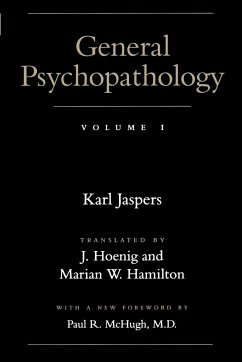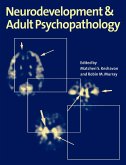In 1910, Karl Jaspers wrote an essay on morbid jealousy in which he laid the foundation for the psychopathological phenomenology that, through his work and the work of Hans Gruhle and Kurt Schneider among others, would become the hallmark of the Heidelberg school of psychiatry. In this text, regarded as his most important contribution to the Heidelberg school, Jaspers critiques the scientific aspirations of psychotherapy, arguing that in the realm of the human, the explanation of behaviour through the observation of regularity and patterns in it (Erklarende Psychologie) must be supplemented by an understanding of the "meaning-relations" experienced by human beings (Verstehende Psychologie).
Hinweis: Dieser Artikel kann nur an eine deutsche Lieferadresse ausgeliefert werden.
Hinweis: Dieser Artikel kann nur an eine deutsche Lieferadresse ausgeliefert werden.








